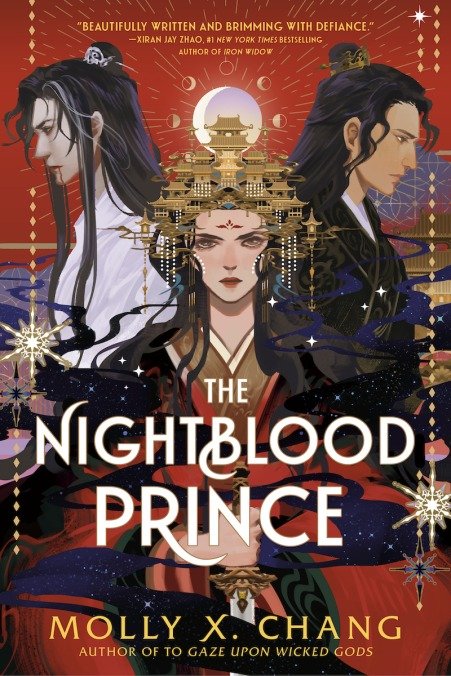The Nightblood Prince: A Daring Journey Not Quite Landed
When I first caught wind of The Nightblood Prince by C.A. Kim, I was immediately drawn in by its promise of magic, political intrigue, and a strong female lead navigating the treacherous waters of royal life. I mean, who wouldn’t want to dive into a world of prophecy and power struggles? However, as I turned the pages, I found myself grappling with a book that felt like it never quite took off—a disappointing experience that left me more bewildered than enchanted.
At its core, The Nightblood Prince embarks on a grand adventure filled with ambition, love triangles, and the heavy burden of destiny. The protagonist, Fei, is meant to be a compelling character, blessed with the title of "Empress of all Empresses." Yet, from the start, she feels more like a catalyst for chaos than a strong heroine. I found her portrayal frustrating—her decisions often felt selfish, showing little consideration for the repercussions on those around her. This sentiment resonates with one reviewer’s poignant observation: “Fei didn’t want to be the Empress, but it seemed the narrative wanted her to be adored regardless of the mess she left behind.”
What struck me most was the inconsistent world-building. The supposed magic of the Phoenix Mark appeared underwhelming and poorly explored, often utilized as a plot convenience rather than a source of intrigue. As I delved deeper, I couldn’t help but echo the sentiment that the political machinations felt too far-fetched, particularly when the resolution to the war culminates in a game that felt more like a mockery of conflict rather than a dramatic denouement.
The writing style, while occasionally lyrical, faltered under the weight of awkward grammar and pacing issues. This was particularly glaring during pivotal moments, rendering the stakes almost laughable rather than heart-pounding. One of the moments that stood out was when Fei, after barely a few interactions, becomes a key player with rivals starting wars in her name—this leap in logic left me scrambling for clarity.
Despite the frustrations, I did find moments of potential brilliance, notably when traditional storytelling tropes like the Mulan-inspired narrative came into play. Fei’s attempts to break free from her predetermined path hinted at a rich exploration of identity that I wished had been fully realized. However, and this is where my disappointment peaked, the journey veered into a convoluted arena where I felt more disoriented than enlightened.
In the end, while I struggled to find joy in The Nightblood Prince, I acknowledge that others might resonate with it. Readers who appreciate whimsical twists on familiar stories and enjoy love triangles may find something to cherish. But for those craving depth, coherent world-building, and a relatable protagonist, I would gently advise that this book might not be the right fit.
As I close this chapter (pun intended!), I am reminded that sometimes, despite the hype, a book simply doesn’t cater to our tastes. The Nightblood Prince was not for me, leaving me yearning for a narrative that held its promise as tightly as it grasped its characters’ fates.
Discover more about The Nightblood Prince on GoodReads >>







